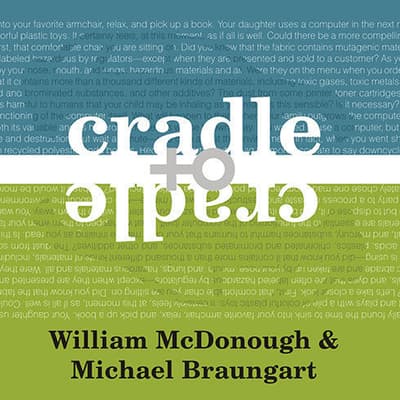


One principle for achieving this eco-effectiveness is the idea that everything we make should be completely reusable, either as a “biological nutrient” (returning beneficially to the earth) or as a “technical nutrient” (reused in an industrial process). The authors suggest replacing the emphasis on eco-efficiency with a focus on “eco-effectiveness,” modeled on nature’s way of producing far more than is needed for a specific function (as in the example of seeds from a tree) but making it all part of a universally beneficial web. Furthermore, many of today’s common strictures are less than inspiring, having accepted a negative situation and trying to just make it “less bad.” These practices, they argue, may in fact do more harm than good by easing our collective conscience as we chug merrily along in the wrong direction. But having their arguments laid out fully in print offers a great opportunity to take in the ideas at your own pace and consider them in various contexts.Ĭradle to Cradle is the idea that today’s conventional efforts at reducing pollution and recycling (“downcycling” of materials to lower-value uses) are merely slowing down a process of destruction that instead must be turned around. The principles of “waste equals food,” “respect diversity,” and “use only current solar income” have been McDonough hallmarks for quite some time. If you have heard William McDonough and Michael Braungart speak at a design conference, you will already be familiar with many of the ideas inĬradle to Cradle. Even the book itself is an experiment in a new way of making books-by printing it on a plastic sheet that looks and feels like paper but is more durable and recyclable. Although they have their critics, no one can ever accuse them of being too modest in their goals. And chemist Michael Braungart, coming from Europe, brings a similar perspective to the world of chemicals and manufacturing. over the past two decades with an uncompromising vision of an industrial world that supports, rather than degrades, the natural world. Plasticback, 194 pages, $24.95.Brilliant and charismatic, William McDonough has helped define ecological design in the U.S. By William McDonough and Michael Braungart.


 0 kommentar(er)
0 kommentar(er)
